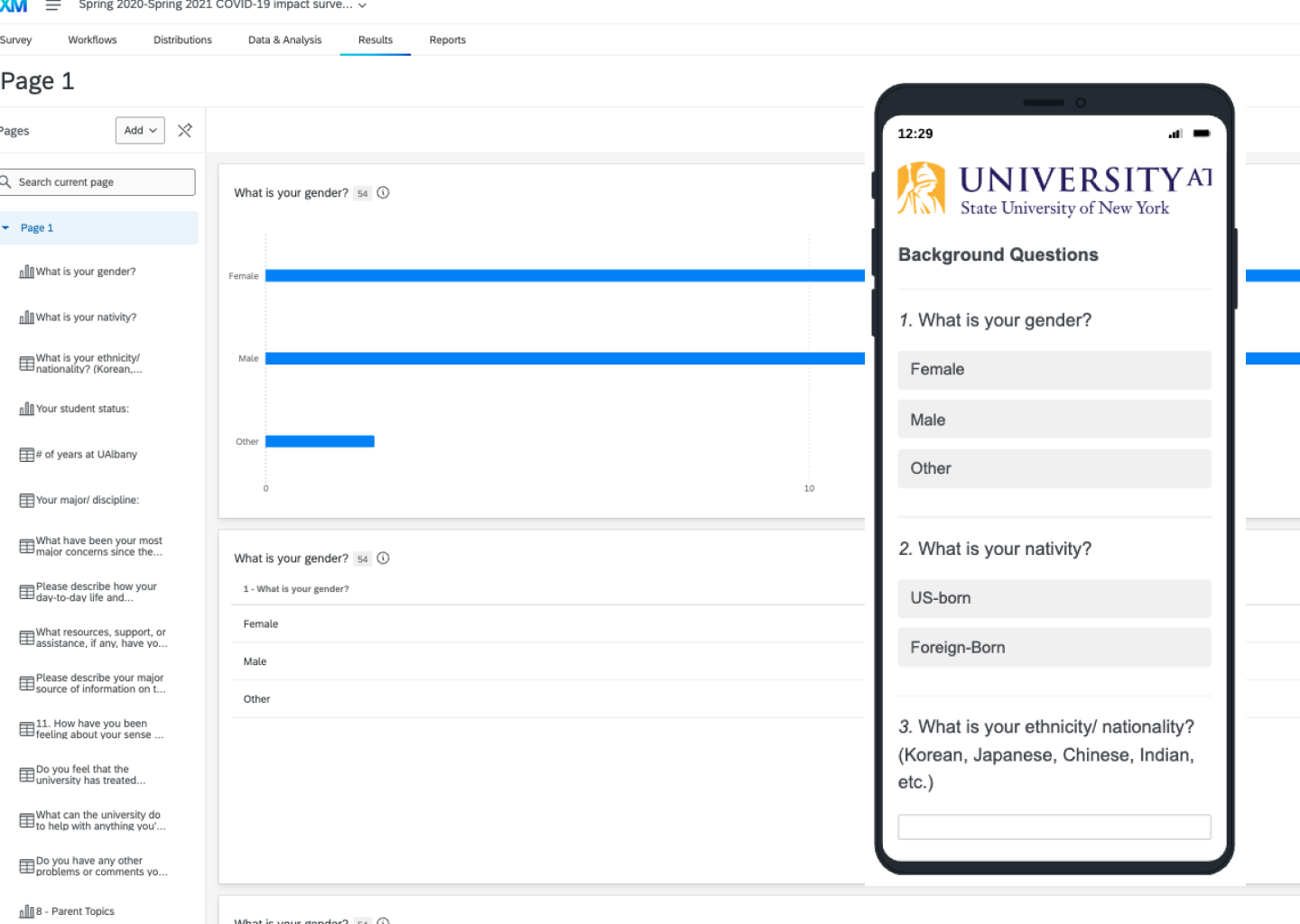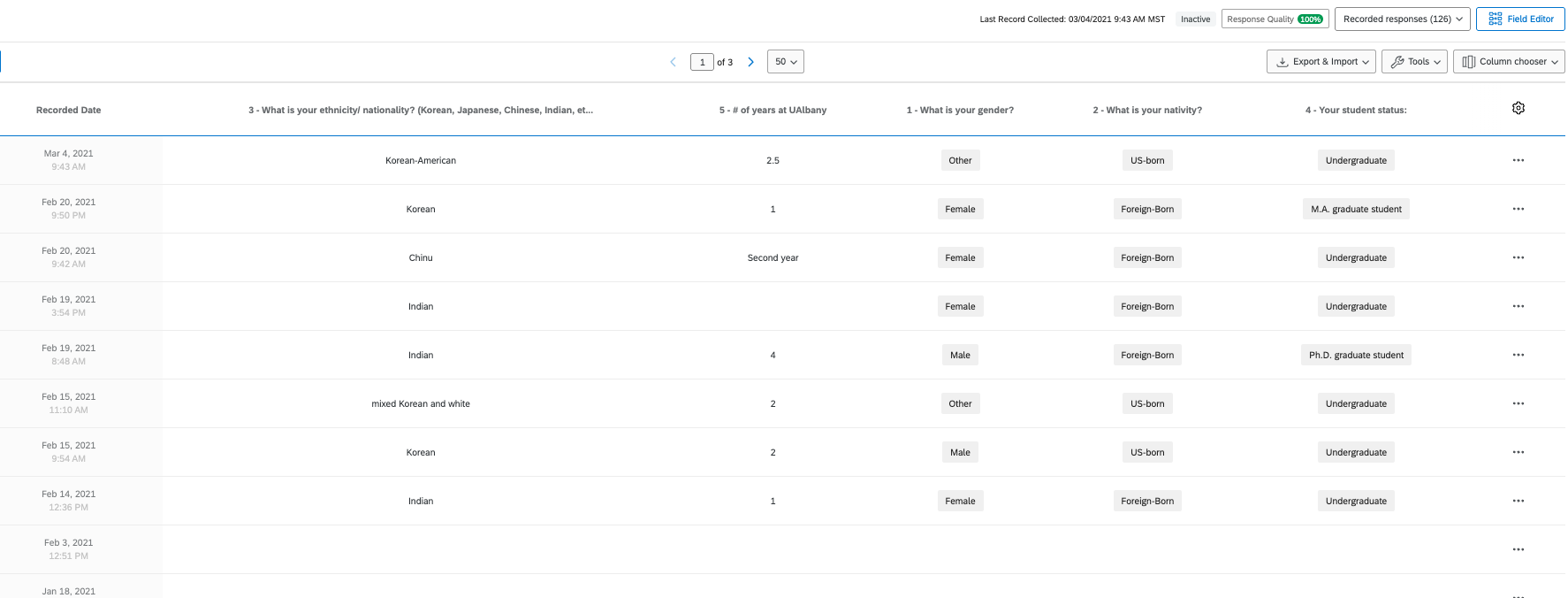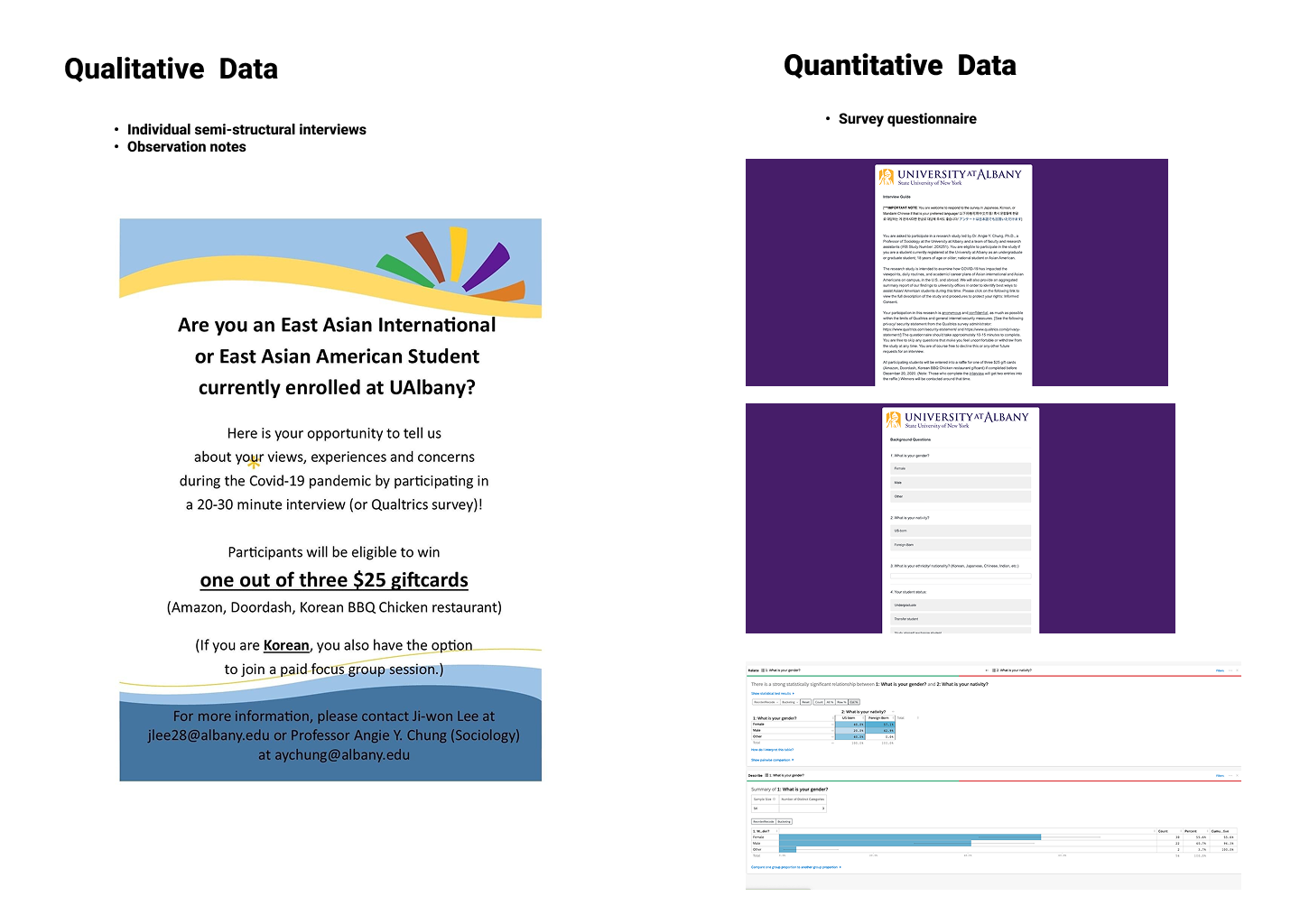East Asian Campus Experience
A Mixed-Methods Exploration During COVID-19

Project Length
20 months
May 2020 - December 2021
Client
University at Albany
SUNY
My Role
UX Researcher
Data Analyst & Designer
Tools
Zoom, Qualtrics
Google Forms & Sheets
Project Overview
The pandemic's onset and anti-Asian sentiment brought about unprecedented challenges to East Asian students with their social interactions and personal well-being. I worked with a team led by Professor Angie Chung at University at Albany, SUNY to capture the difficulties and multifaceted experiences of students during this period.
This mixed-methods research project aimed to understand and document the unique challenges faced by East Asian students during the COVID-19 pandemic, providing actionable insights to improve university policies and support services.
UX Skills
- Mixed Method Design
- Data Collection & Analysis
- User Matrix
- Semi-Structured Interviews
Research Team
- Professor & Graduate Students (Sociology)
- Student Health Service
- IT Team
Discover
Challenge
In 2020, the onset of the COVID-19 pandemic brought abrupt changes to daily life, intensified by rising anti-Asian sentiment and widespread campus closures. For East Asian students—a marginalized group—these shifts created unique challenges in maintaining social connections, managing well-being, and continuing their academic journeys with limited support.
Recognizing and documenting their experiences during this time is crucial for informing more inclusive university policies and enhancing the campus environment for minority students.
Assessment Goals That I Helped to Achieve
- Understand East Asian students' struggles and pain points with campus experiences during the pandemic
- Gather and analyze qualitative and quantitative data to identify and understand issues
- Provide actionable recommendations to university leaders to address these challenges and improve student well-being during the pandemic
Define
Research and Strategy
We conducted student and organizational research, created a survey, earned IRB approval, recruited participants, collected data, and analyzed the data which quickly turned into actionable recommendations to university leaders.
Research Activities I Participated In
- Designed and reviewed questionnaires; launched a pilot study to test the validity and reliability of the survey
- Recruited among the campus population and surveyed 100+ East Asian students about the problems they face
- Conducted and transcribed 10+ semi-structured interviews with students and staff
- Collaborated with the IT team to publish the survey and distribute it to students
- Collected and visualized data
Process
A user matrix was established based on the pilot study results. After IRB (Institutional Review Board) approval, we recruited 126 users for survey and interviews that fell within the user matrix.


Mixed Methods Study
Mixed methods study to gather student data and pain points:

Deliver
Outcome
Based on the survey and interview results, we identified the following issues:
- Student health service was not responsive to students' needs during the pandemic
- Social support needed to be improved for East Asian students
Student Stories Video
We made a video inviting students to share their stories about racism to the university leaders and Albany society:
Progress Toward Goals
Deepened Understanding
Through the mixed-methods survey of East Asian students, we successfully identified key academic, social, and psychological challenges faced during the COVID-19 pandemic. The qualitative responses provided rich insights into students' emotional distress, feelings of isolation, and experiences with anti-Asian sentiment.
Collected Actionable Data
We gathered data from over 126 participants across multiple institutions, achieving representation across different nationalities, education levels, and fields of study. The analysis revealed patterns in student needs, particularly around mental health support, communication barriers, and the impact of online learning environments.
Strengthened Research Capacity
The project utilized both quantitative analysis (descriptive statistics, cross-tabulations) and qualitative coding, enhancing our ability to triangulate findings and ensure data validity. Our team also improved internal workflows for coding open-ended responses and integrating results into policy briefs.
Institutional Impact
Preliminary findings were shared with student affairs and international student offices at UAlbany, sparking interest in improving campus communication and support services. Plans are underway to present the results at a regional education conference and to publish a summary report accessible to stakeholders and peer institutions.
"Libin is an exceptional researcher and collaborator with a sharp analytical mind and deep cultural insight. Her ability to design thoughtful surveys, conduct rigorous mixed-methods analysis, and synthesize complex findings was instrumental to the success of our study on East Asian student experiences during the pandemic."
— Dr. Angie Chung, Lead of the project, Professor of Sociology, University at Albany, SUNY